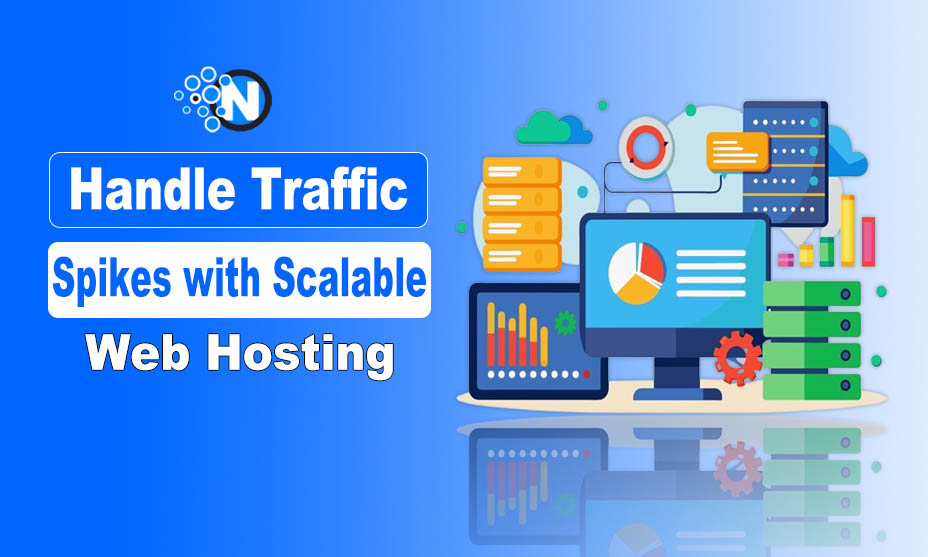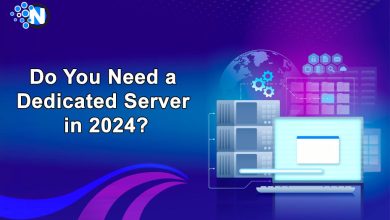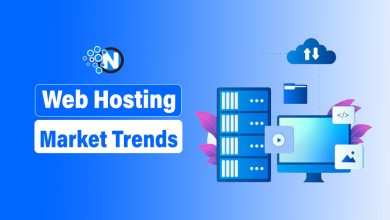How to Handle Traffic Spikes with Scalable Web Hosting Solutions

Have you ever been intrigued by an unexpected spike in website traffic? You feel both joyful and a little overwhelmed, like a wave slamming over you.
As a highly technical person who is passionate for all things digital, I am all too familiar with that feeling. However, a lot of website owners are unaware of the fact that increased traffic also means more responsibility.
An unexpected surge in visitors to your website may be both a boon and a pain. It shows, on the one hand, that more people are connecting with your content. However, you may be facing outages, slow load times, and unhappy visitors if your hosting solution isn’t up to the increased volume.
Below I will explain how you can handle traffic spikes effectively by investing in scalable web hosting solutions.
A Traffic Spike: What Is It?
A sudden rise in website visitors leads to a sudden increase in online traffic, which is known as a traffic spike. Major changes in server load, website responsiveness, and user experience can result from such spikes. They can come in different shapes and sizes, differing in length and power.
These can include long periods of continuously high traffic or quick yet powerful spikes. Increases in traffic can have a negative effect on user engagement, conversion rates, and the site’s reliability. They can also result in slow load times and server failures. Therefore, managing traffic spikes becomes essential to maintaining optimum website performance and guaranteeing a smooth user experience.

Why Do Traffic Spikes Occur?
Viral Content: An increase in traffic might result from a blog post, video, or social media post that goes viral. This can result in a sudden increase in traffic as it is often unpredictable.
Marketing Campaigns: Ads, promotions, and email campaigns that are successful can generate a lot of visitors. Campaigns that are planned should account for increased traffic volumes.
Media Coverage: Strong news in the media or on well-read blogs can draw a sizable audience quickly.
Seasonal Peaks: Predictable spikes in traffic might be caused by occasions such as Black Friday, Cyber Monday, or the holiday season. For these times, careful planning is essential.
Dealing with Traffic Spikes is Important
Maintaining website performance, user experience, and general business reputation all depend on managing traffic spikes. Ignoring rises in traffic can lead to:
Downtime: Guests may become irritated when their website crashes or experiences outages due to overloaded servers.
Slow Loading Pages: Customers that visit slow-loading websites are more likely to bounce, which might be caused by an increase in traffic. Poor performance during traffic spikes can negatively impact the user experience and turn off potential consumers.
Missed Opportunities: Sales, conversions, and engagement may be lost if more traffic is not taken advantage of.
SEO Impact: Slow-loading websites may be fined by search engines, which could lower their visibility and search rankings.
How to Choose the Optimal Hosting Option for Scalability?
How can you make sure that your website can withstand sudden increases in traffic without breaking a sweat? Scalability is the key. Scalable hosting plans are made to grow together with your website, easily adjusting to changes in the volume of visitors.
Look for features like auto-scaling, load balancing, and high availability when selecting a hosting solution. These technologies will guarantee that, even at periods of high traffic, your website stays responsive and reliable.
Solutions for Scalable Hosting: These services allow websites to automatically grow their resources in response to spikes in traffic. Scalability choices are available with cloud hosting, linux and windows VPS, and dedicated servers, guaranteeing steady performance even with sudden increases in traffic.
Content Delivery Networks (CDNs): By distributing web content among numerous servers located in different places, CDNs reduce the strain on a single server and improve user load speeds globally.
Mechanisms for Caching: Caching reduces the need for users to download data from the server each time they view a page by temporarily caching frequently visited data. During traffic spikes, server load can be reduced with the use of caching plugins and server-side caching.
Load balancing: This technique involves splitting up incoming load equally among several servers. This strategy keeps performance at high levels and keeps a single server from overloading.
Elastic Resources: In reaction to traffic demands, cloud hosting providers automatically scale up or down their resources. This guarantees that your website can automatically handle spikes in traffic that occur suddenly.
Traffic Monitoring and Alerts: Use real-time traffic monitoring systems to identify spikes as soon as they happen. To ensure that you act quickly, set up alerts to receive messages when traffic reaches certain standards.
Optimised Website Code: During periods of high traffic, servers with well-optimised website code experience less strain. Reduce unnecessary scripts, enhance picture quality, and get rid of duplicate code to enhance the overall functionality of your website.
Disaster Recovery Plans: Create a strategy that describes what to do in the event that your website slows down or goes offline during periods of high traffic. A carefully planned approach guarantees quick healing and little disturbance.
To Wrap It All Up
Using scalable hosting solutions to handle unexpected increases in traffic is a balancing act that needs careful preparation and smart thought. You can make sure that your website is steady and responsive even under high traffic conditions by learning how traffic spikes affect it, selecting the best hosting option, scheduling performance tests ahead of time, and keeping an eye on traffic in real time. In case you have lower traffic on your website, you can opt for cheap web hosting which is shared hosting.
Always remember that planning is crucial for effective website performance. Unexpected traffic spikes can be converted into chances for expansion and success by making an investment in scalable hosting options and proactive site optimization.




